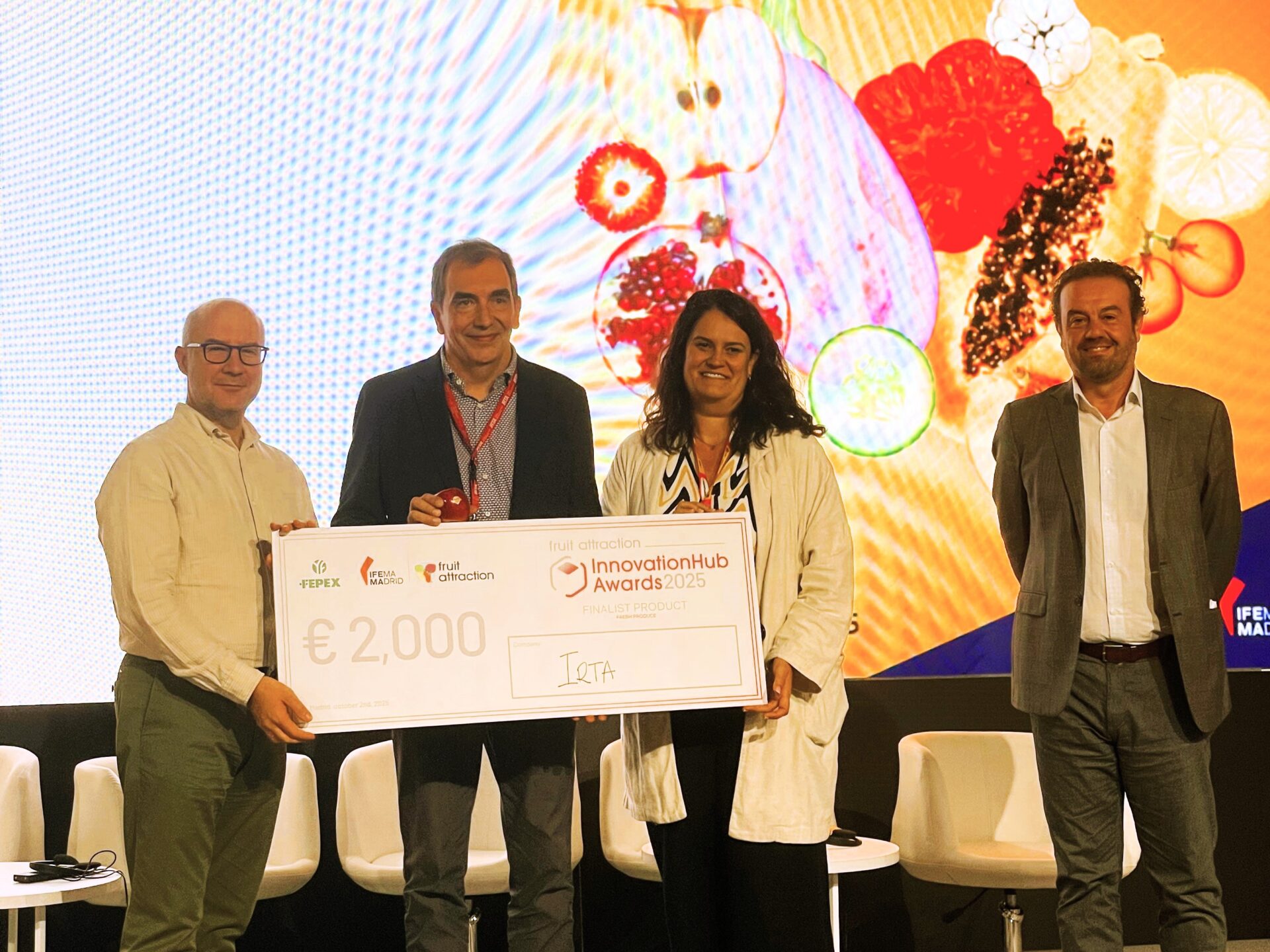La nostra recerca s’estructura en tres àmbits d’actuació, tenint en compte dos grans reptes: la digitalització i el canvi climàtic. En primer lloc, ens dediquem a avaluar, seleccionar i obtenir material vegetal com varietats i portaempelts perquè tingui una bona adaptació a les condicions d’edafologia i de clima. En segon lloc, ens centrem en el maneig dels punts claus del procés productiu, com la floració, el quallat, el desenvolupament del fruit, la regulació del vigor i la collita. En tercer lloc, estudiem com millorar la qualitat del producte en fresc o en el seu procés de transformació, especialment en fruita seca i elaiotècnia. Tots aquests aspectes faran que una nova plantació tingui èxit. Així, donem resposta al sector productor tenint en compte la vessant econòmica, com la mecanització dels conreus i la digitalització, i la part social, com el fet d’obtenir aliments saludables i optimitzar els recursos i l’energia.
Our research is structured in three areas of action, taking into account two major challenges: digitization and climate change.
First, we are dedicated to evaluating, selecting and obtaining plant material, such as varieties and rootstocks, so that they are well adapted to soil and climate conditions.
Secondly, we focus on the management of key points in the production process, such as flowering, fruit set, fruit development, vigor regulation and harvest.
Thirdly, we study how to improve the quality of the product in fresh or in its transformation process, especially in nuts and eleotechnics (manufacture of vegetable oils).
All these aspects will make a new plantation successful. So we respond to the production sector taking into account the economic aspect, in terms of crop mechanization and digitization, and also the social aspect, in terms of obtaining healthy food and the optimization of resources and energy.
Agronomic behavior and climate change
We characterize and evaluate the agronomic and qualitative behavior of plant material (clones, varieties, rootstocks) of nuts, sweet fruits, olive trees, vineyards and citrus fruits, as well as their adaptation to climate change using ecophysiology techniques in relation to abiotic stress (drought, high temperatures, cold and heat waves, etc.) and biotic stress (pests, diseases or biodiversity).
New varieties and gene banks
We obtain new varieties of almond, apple and pear with high taste quality that are adapted to the new challenges of climate change, and we catalog, typify and safeguard native and foreign varieties in germplasm banks to preserve genetic biodiversity.
Interactions between soil, plant and water
We work to ensure that crops have good agronomic behavior for their adaptation, mitigation and resilience to climate change. We do this based on studies on the interactions between soil, plant, water and atmosphere that help us better understand how they work and provide solutions and strategies.
Sustainability
We design new plantation models to optimize management with a focus on environmental sustainability, including: training systems; driving strategies and protection systems against weather events (hail, frost, heatstroke, etc.); the promotion of biodiversity; ecological infrastructures, and the reduction in the use of agrochemicals.
Studies with phytohormones
We study the hormones produced by plants and carry out mitigation and biotic and abiotic stress studies.
Natural infrastructures
We study and design ecological infrastructures to promote biodiversity and auxiliary fauna, which act as natural enemies and pollinators.
Crop efficiency
We model phenology, agroclimatic indicators, water needs and carbon sequestration, as well as water use efficiency, both in varieties and rootstocks and in productive models of almond cultivation. We use VIS-NIR spectroscopy to determine key parameters in production and transformation.
Olive oil
We classify oils in order to discover the majority and minority components of oils produced in Catalonia, as well as their effect on the sensory characteristics perceived by consumers. We also improve milling processes, seeking to optimize industrial performance and the quality of the extracted oil.
Plant health
We study the interaction of crop management and plant material on the appearance of physiopathies, quality and strategies to mitigate their impact.
In vitro cultures
We improve in vitro processes for propagation, sanitation, embryo rescue and cell cultures. We have developed an in vitro culture system (GreenTray®) to study plant responses to biotic (fungi and bacteria) and abiotic (minerals and atmospheric changes) factors.










































































